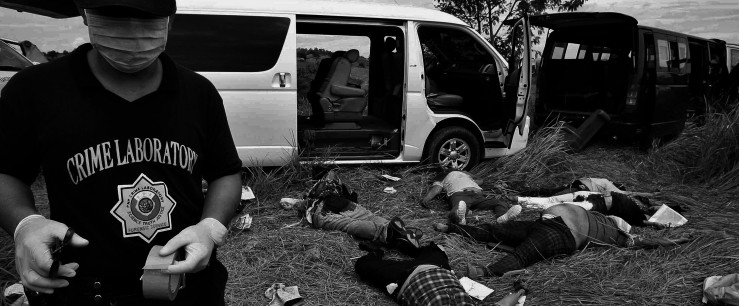
Growing up with a journalist father has always given me an idea of how risky the profession has been, particularly in the regional or local areas, where political and commercial interests hold sway over how journalists conduct themselves.
Despite those interests, I have also seen my father pursuing stories which he viewed to be necessary for the public good and for the creation of a more just and equitable society. And it was by his example that when I eventually went into journalism where dedication to ferreting out the truth and exerting efforts to balance stories became important aspects in the conduct of the profession.
Still my idealism then, when I went into the profession, was tempered by the reality that journalists in the country can easily be killed. And no amount of beautiful epithets or eulogies can bring back the lives of journalists murdered because of their devotion to revealing the truth.
It is regrettable that the practice of journalism in the country entails so much risk that its very situation mocks the supposed democratic society we believe to be existing. The essential role of journalism in an evolving democracy such as the Philippines is beyond measure. Yet its active fulfillment of that role as watchdog of government and corporate interests is constrained by the constant fear of intimidation, injury or death.
In spite of the obvious risks, the challenge still remains for Philippine society: Should citizens cower and refuse to claim the truth out of fear of death? Should Filipinos no longer bear witness to the abuses of those in power even when these individuals are supposed to be accountable to the people? Should we live in an environment where freedom of speech and of the press can only be exercised when pleasing the powers that be?
These questions should constantly be asked by Filipinos when approaching the role of the press in our society. And they should be asked not only by Filipino journalists themselves but by every Filipino who cherishes his or her right to free speech, expression and association.
The role of journalists in Philippine society, dating back the ilustrado propagandistas in Europe has always been to expose abuses and promote social justice. And noted journalists like Marcelo H. Del Pilar, Graciano Lopez-Jaena, Mariano Ponce and Jose Rizal have staked their fortunes, liberties and lives to these goals then. Over a century since, many of the contemporary journalists now continue the tradition by placing their selves at harm’s way to deliver us the news and promote social change.
Back then we were always told that “no story is worth dying for.” And it was a mantra which has since then circulated among media practitioners, constantly being brought to life again whenever there are risky coverages in conflicts, natural disasters, police raids and fires. But it is a mantra which has often been used to dissuade journalists from foolhardy decisions in coverages which could cause loss of limb or life. As for stories which shake up political and economic structures however, the line is almost always never brought up.
I think it should be incumbent upon media practitioners then that the commitment to speaking truth to power continue, despite the obvious risks it entails. It should be the duty of every journalist to reveal the abuses of those in power, to bring to light the cloaked schemes of political and economic interests, and to continue to speak for those who cannot speak for themselves.
It can be said that being a journalist is not merely about reporting the news. While many would like to believe that it is as simple as that. But the reality is not. As a reporter in the field, you choose to make stories usually of the oppressed, of the forgotten and of the disenfranchised. And it is usually your stories of these people as a journalist which makes a difference in the lives of others, and gives meaning to your own.
Reblogged this on It's Me, Ardyey!.